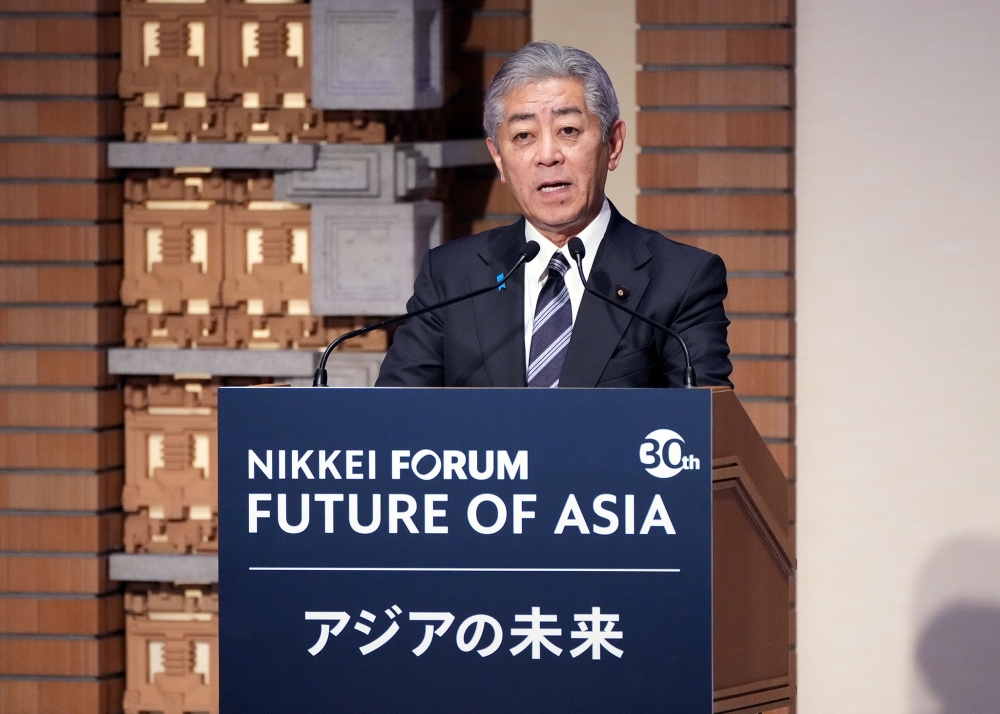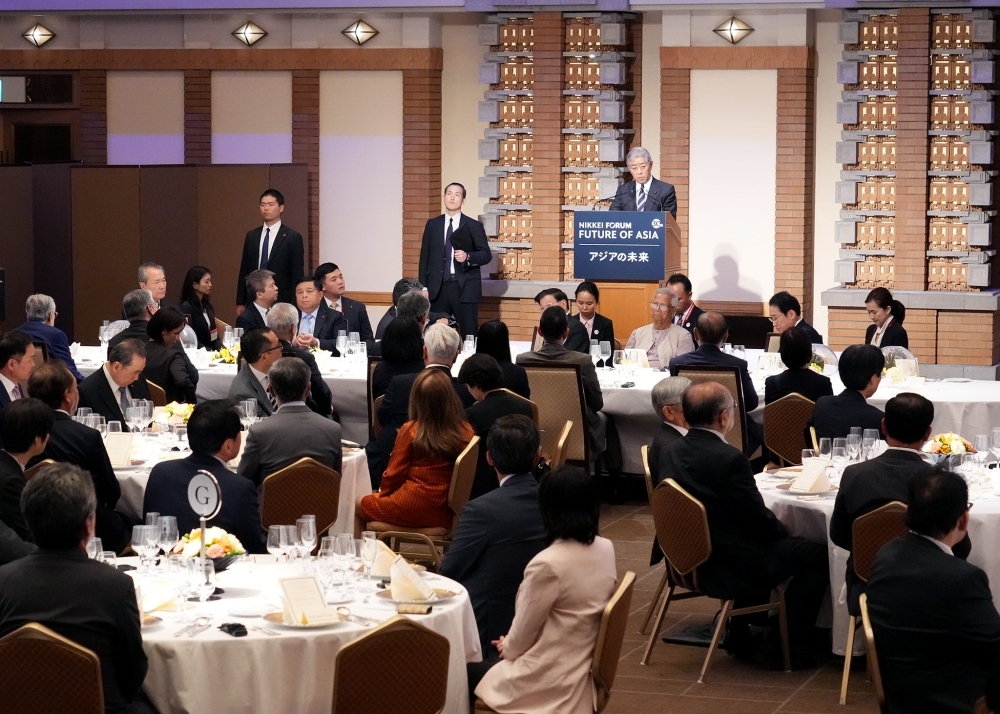Press Releases
Foreign Minister IWAYA’s Attendance at the Nikkei Forum 30th “The Future of Asia” Welcoming Dinner


On May 29, Mr. IWAYA Takeshi, Minister for Foreign Affairs of Japan attended the Welcoming Dinner at the Nikkei Forum 30th "Future of Asia", where he delivered the opening remarks. The overview of his opening remarks is as follows. The Welcoming Dinner was attended by dignitaries from various countries, including H.E. Dr. Thongloun Sisoulith, President of the Lao People’s Democratic Republic, H.E. Mr. Surangel S. Whipps, Jr., President of the Republic of Palau, Dr. Muhammad Yunus, Chief Advisor of the Interim Government of the People's Republic of Bangladesh, H.E. Mr. Nguyen Chi Dung, Deputy Prime Minister of the Socialist Republic of Vietnam, Hon. Enrique A. Manalo, Secretary for Foreign Affairs of the Republic of the Philippines and H.E. Mr. Maris Sangiampongsa, Minister of Foreign Affairs of the Kingdom of Thailand.
- Introduction
It is my great honor to have the opportunity to deliver my remarks at the Welcoming Dinner of the memorable 30th "Future of Asia". - Japan and Southeast Asia
Needless to say, Southeast Asia is the world's growth center. It is the key region toward the realization of a “Free and Open Indo-Pacific (FOIP)”, based on the rule of law. Strengthening the relationship with Southeast Asia is one of the top diplomatic priorities of the Ishiba administration.
Prime Minister Ishiba visited Laos in order to attend the ASEAN-related Summit Meetings last October, immediately after taking office. It was then followed by his visits to Malaysia and Indonesia in January, and Vietnam and the Philippines in April. Of the eight countries he has visited since taking office, five are in the Southeast Asia region.
Since taking office, I myself have also visited countries such as China, the Republic of Korea, Palau and the Philippines. Listening to the voices of Asia and working together to address various challenges, this is the Ishiba administration’s main position. - Free trade
Looking around the world, tensions are escalating over the global economy and international trade. Amid this, Japan is determined to demonstrate leadership in maintaining and strengthening the free trade system.
It goes without saying that Asia's robust growth is driving the global economy. However, this is only possible with free trade. Japan will work with other countries toward developing a rules-based, free, fair and open international economic order.
To this end, Japan will continue to proactively promote not only WTO reform but also the CPTPP and RCEP agreements, as well as bilateral economic partnership agreements. For example, we have been advancing EPA negotiations with Bangladesh since last year. - Diplomacy through dialogue and harmony
I am also strongly concerned that the international community have been increasingly divided and confrontational. Any unilateral attempts to change the status quo by force is intolerable anywhere in the world.
Even in Asia, its security environment has been more severe and complex as is exemplified by North Korea’s nuclear and missile development, unilateral attempts to change the status quo in the East China Sea and the South China Sea. The resolution of the abductions issue is also urgently needed.
In light of this, Japan will promote the “Free and Open Indo-Pacific (FOIP)”. Japan will conduct diplomacy, a diplomacy of dialogue and harmony, that leads the international community from division to cooperation. - Concluding Remarks
In order to achieve peace and prosperity in Asia, it is essential that not only governments, but also a wide range of stakeholders, including businesses, the media, and experts, deepen mutual understanding through dialogue and exchange.
The Nikkei Forum "Future of Asia" plays an important role in exchanging candid views across boundaries of politics, businesses and academia. I would like to express my heartfelt respect and gratitude to the host, Nikkei Inc., and those who have contributed to the forum.
With best wishes for the memorable 30th forum be a fruitful one and the further success of the "Future of Asia" forum and the continued health of those who participated, I would like to conclude my remarks.

